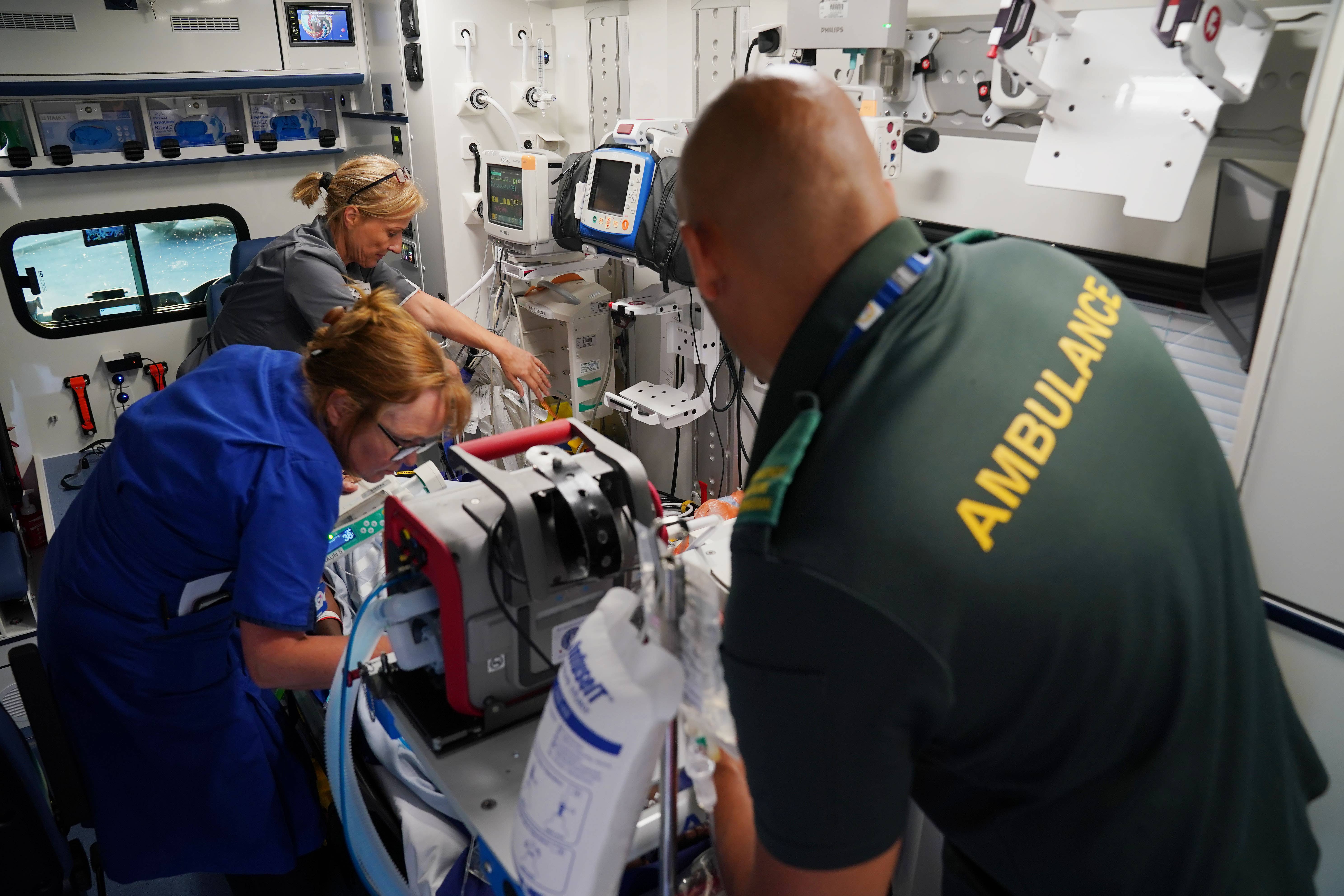Children’s intensive care ambulance service celebrates 25 years of saving lives
The South Thames Retrieval Service, which transports critically ill children, is celebrating its 25th anniversary.

Your support helps us to tell the story
From reproductive rights to climate change to Big Tech, The Independent is on the ground when the story is developing. Whether it's investigating the financials of Elon Musk's pro-Trump PAC or producing our latest documentary, 'The A Word', which shines a light on the American women fighting for reproductive rights, we know how important it is to parse out the facts from the messaging.
At such a critical moment in US history, we need reporters on the ground. Your donation allows us to keep sending journalists to speak to both sides of the story.
The Independent is trusted by Americans across the entire political spectrum. And unlike many other quality news outlets, we choose not to lock Americans out of our reporting and analysis with paywalls. We believe quality journalism should be available to everyone, paid for by those who can afford it.
Your support makes all the difference.A father from Twickenham has praised children’s intensive care ambulance staff for saving his teenage daughter’s life as the service celebrates its 25th anniversary.
The South Thames Retrieval Service (STRS) transports critically ill children and young people from local hospitals to paediatric intensive care and critical care units across the south Thames region and beyond using specially equipped ambulances.
The retrieval team is made up of clinicians from Evelina London’s paediatric intensive care unit, who are trained in stabilising and transferring seriously ill children.
Isla, 14, was transferred by the service to Evelina London’s paediatric intensive care unit after she was diagnosed with severe pneumonia last December.
Isla’s father Charlie, 49, said he “felt helpless seeing Isla fighting for breath and not being able to do anything to help her” but he was reassured by “seeing how calm STRS were”.
“I’ve watched great sporting teams in action but this was as good as any of them,” he said.
Isla was put on a ventilator for two weeks to help with her breathing and “made a great recovery, both physically and mentally,” Charlie said.
He said: “We have no doubt that Isla wouldn’t be here now if it wasn’t for the STRS team and that, more than anything else, sums up the amazing job they do.”
The PA news agency spoke to two team members inside the back of an ambulance while they were on a trip to move a child from East Surrey Hospital to St George’s Hospital in Wimbledon.
Sarah Hardwic, an advanced nurse practitioner who has been working for STRS for 23 years, said the service helps children who are suffering from a “whole range” of problems, such as asthma, neurology disorders or physical injury.
Jayne Farrance, senior staff nurse/retrieval nurse for STRS, told the PA news agency that most of the children helped by the service are “tiny” and that the team uses special equipment suitable for small children.
Speaking inside the ambulance, Ms Farrance said: “We’ve got everything that we would need, because each child’s needs are different depending on their size and their condition.”
The service was launched in 1997 and in 2002 STRS became the first retrieval team in the UK that allowed parents to accompany their child during the transfer in specially equipped ambulances.
Advanced nurse practitioner Ms Hardwic said the service has “changed massively” over the years.
She said: “When it first started… it would be a senior medic and a senior nurse going out with a bag of equipment and they would take a taxi out to the district general hospitals.
“They would help stabilise the child, and then they would call a 999 ambulance to get the child brought back into London.
“What we have now is our own purpose-built ambulances, which we’ve had for a long time, and so we’ve got two teams on 24/7 available so that when the district general hospitals call us, we can be there giving advice over the phone, helping them make decisions of whether the child needs to be brought to an intensive care… and mobilising the teams to actually go out and move the children.”
STRS provides advice and care to 2,000 critically ill children and young people in the south Thames region each year.